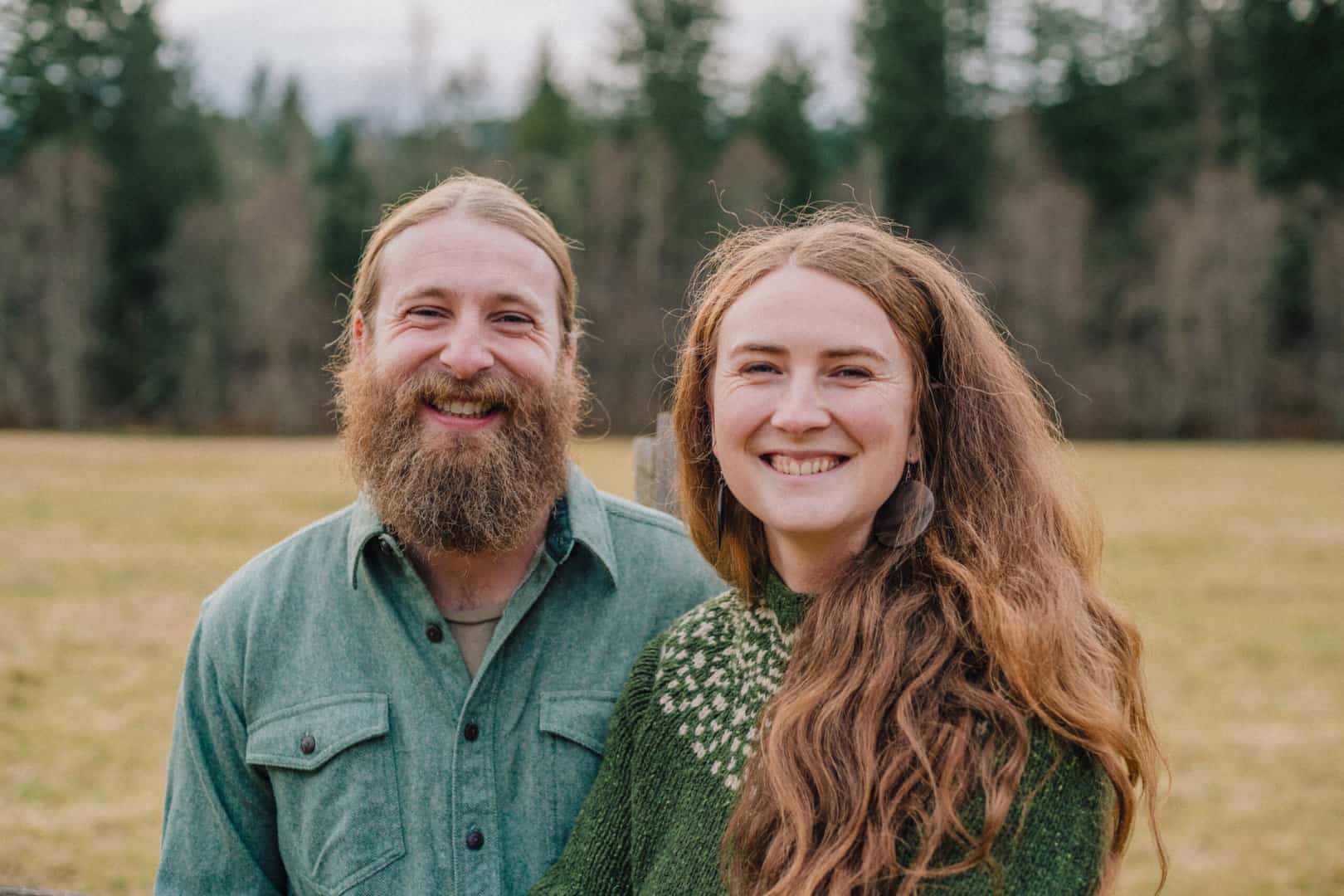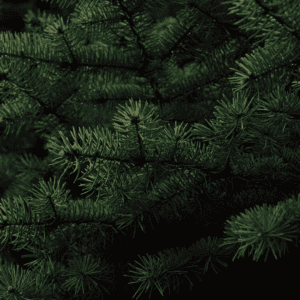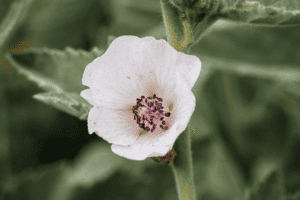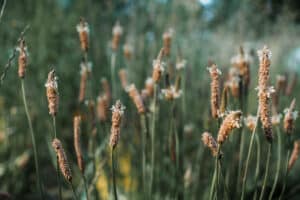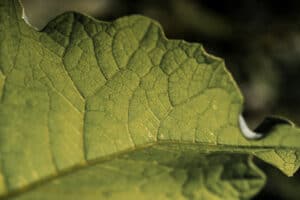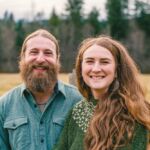Do you ever feel lost in your herbal studies? The journey as an herbalist can seem long and daunting. There are so many books out there, courses, traditions, and of course – herbs to study.
When your path ahead is unclear, it helps to pause and make a plan to figure out where you want to go and how to get there. With a clear map, you can handle any rough terrain, forks in the road, or unmarked trails with as few detours along the way as possible. This blog post is all about you, helping you to find yourself on the plant path and forge a trail ahead of you.
In this week’s blog post, you’ll learn:
- The three stages of herbal mastery and what you need to study to reach each one
- About different types of herbalists, from home-based healers to clinical practitioners
- How to choose the herbalism path that suits you best
- What courses The School of Evolutionary Herbalism offers, and how to pick the one that’s right for you
Table of Contents
As you start your herbalism adventure, think of it like a journey. David Winston is a renowned clinical herbalist with nearly 40 years of experience, yet he modestly says he finally feels confident calling himself an advanced beginner. This sentiment emphasizes how vast the world of herbalism truly is and how much there is to learn. The journey of learning herbalism can be divided into three stages: beginner, intermediate, and advanced. Each stage isn’t an exact science–you may find yourself swimming between each and returning to learn more as you progress in your studies.
Beginner
During the beginner phase, you lay down the foundation of your herbal studies. This means learning essential concepts, such as the core medicinal qualities of plants and their roles in the body, which you can study from various traditional perspectives, like Western herbalism, TCM, or Ayurveda. Whichever tradition you choose, this is the time to develop a solid understanding of the basic elements of plants.
Moreover, in this foundational stage, it’s time to link your knowledge of traditional systems with an understanding of herbal energetics. This includes studying how herbs affect temperature, moisture, and tissue tone. Another aspect to focus on in your beginner studies is anatomy and physiology. Studying these helps you understand how the body functions and how herbs influence health and illness. Although anatomy and physiology are often taught separately, learning them in an integrated way can help you see how they interweave in the body.
Lastly, don’t forget the herbs themselves! Study the materia medica by learning from teachers, books, and, most importantly, the natural world and familiarize yourself not only in your head but also in your heart.
The beginner stage is all about building a strong foundation for your unique herbal approach, and it’s an important part of your herbal journey that you can’t skip. By mastering these elements, you prepare yourself for the next phase of your herbal adventure.
Intermediate
Now that you developed a foundational understanding of herbs and human physiology, it’s time to merge this knowledge with assessment tools so you can start to work with people.
When you understand why the body functions the way it does and have a deep knowledge of herbs, you’re ready to start working with people. While it can feel daunting, you can’t learn everything from books. Hands-on experience is essential to becoming a competent and confident herbalist.
In this phase, you learn how to conduct client interviews and intakes, assess underlying causes of health issues, and create herbal formulas that address both the symptoms and root causes. Simultaneously, you also continue to deepen and expand your knowledge of the materia medica, including some of the basics, like Chamomile (Matricaria recutita) and Peppermint (Mentha piperita). Although some people view safe and accessible herbs as beginner herbs, the herbalist is forever and foremost a student of nature, and this means deepening your understanding of all plants–not just the obscure ones.
An important part of this stage is putting the knowledge you’ve gained into practice and getting your feet wet by taking on some practice clients. You can gain practical experience by working with people you feel comfortable with, such as family members, friends, or coworkers to apply your herbal expertise and improve your skillset.
Advanced
At this level, herbalism is what you do day in and day out. It’s your career and how you support yourself and your family. It involves your practice and dispensary and involves deeper client interactions, like follow-ups and creating formulations, as well as keeping meticulous case notes and having a supportive herbal community.
Emotionally, this stage brings a degree of confidence and competence, enabling you to see clients regularly and consistently. Additionally, you’ll refine your assessment tools, pulse and tongue evaluations, interview skills, and formulations. Being an advanced herbalist isn’t about leaving behind what you learned earlier. It’s about building upon that foundation.
Remember that you might excel in some areas and need to strengthen your knowledge in others. In those moments, don’t hesitate to circle back and build upon your beginner’s knowledge to strengthen your understanding of a particular organ system or condition.
As an herbalist, you’re always moving back and forth between these stages, but having a clear idea of where you can help you focus on what you need to focus on most to progress in your learning journey and plant path.
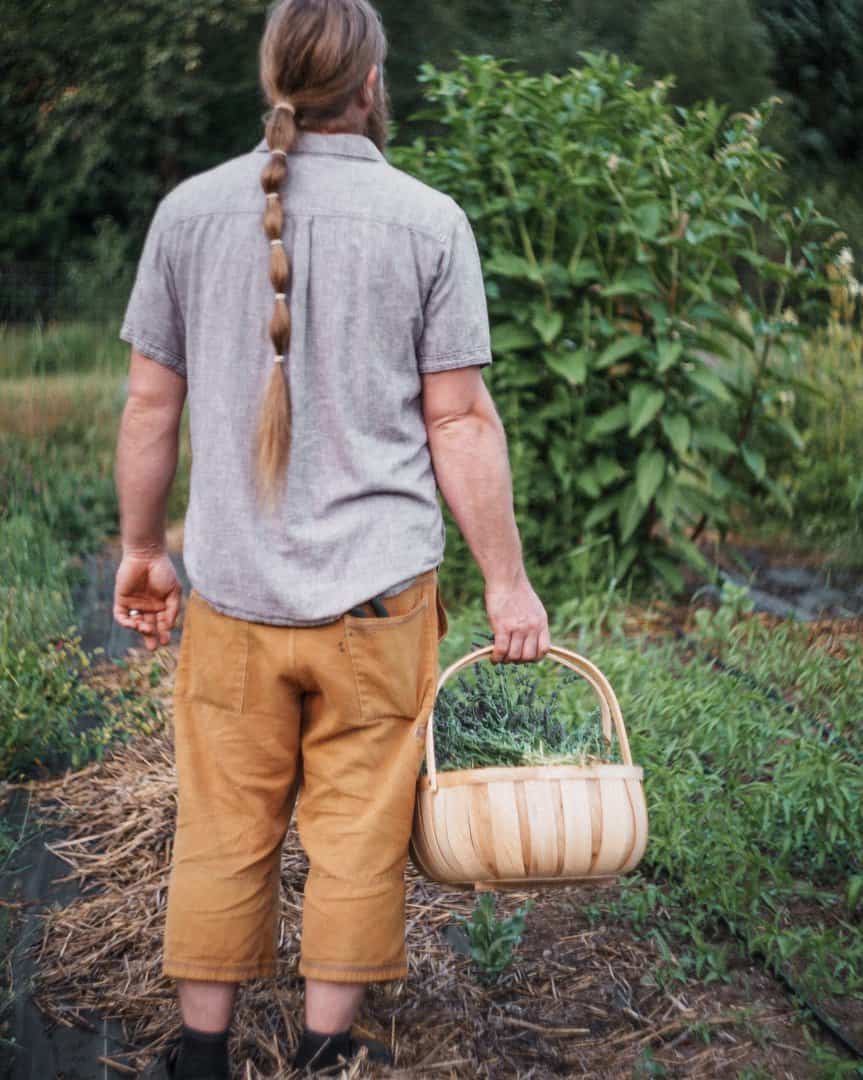
Choosing Your Path in Herbalism
After determining where you stand with your herbalism knowledge, the next step is to decide where you want to go. Think about what scale you want your herbal practice to have. Would you like it to be a hobby you can help your family with, or do you want this to be a career? Getting clear on this is important because your choice will influence how much time, money, and energy you invest in your herbal education.
Home Herbalist
If you want to explore herbalism to improve your health or help your friends and family in minor health situations, you fall into the home herbalist category. Here, you focus on using herbs in everyday situations and substituting over-the-counter medications with natural remedies.
Community Herbalist
On the second scale, a community herbalist is more extensively trained and equipped to handle a wider range of health issues. Although they’re a lot more informed than the home herbalist, they still have a lot to learn to reach the point of being a clinical herbalist.
Clinical Herbalist
Here, herbalism becomes a career. Clinical herbalists see clients regularly, often from a clinic or office space, and are dedicated to helping people on a professional scale.
Consider where you currently stand on this scale. Are you just beginning your herbal journey, or have you been practicing for a while? What are the key areas you need to focus on to progress to the next level? Ultimately, think about your long-term goals and what the next stage will look like for you. There’s always room for growth in herbalism, so what’s your next mountain to climb?
There are many paths you can choose if you want a career in herbalism, such as growing or wildcrafting plants, making medicine, formulating products, teaching classes and workshops, writing books, and offering training programs. Think about what you enjoy and love to do. By choosing a sector of herbalism you feel passionate about, you can find a way to support yourself by doing something you love.
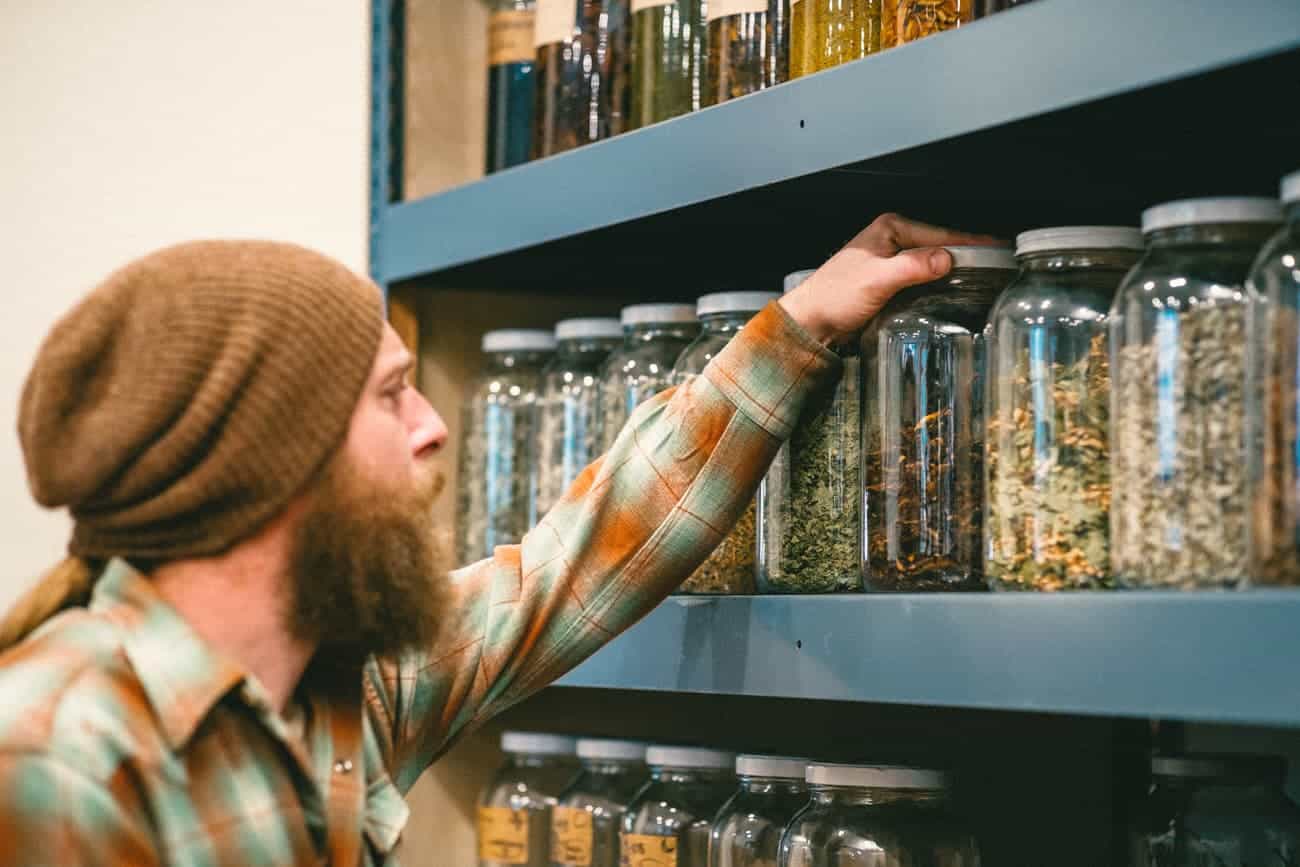
Exploring a Career in Herbalism: Choosing the Right Path
When considering your plant path, you’ll find a multitude of options, all offering a unique focus and perspective. Ultimately, the path that’s right for you is the one you feel aligned with. Let’s take a closer look at some of the programs we offer here at The School of Evolutionary Herbalism so you can decide which one is right for you.
Materia Medica Monthly: Unlocking the Essence of Herbs
Materia Medica Monthly is our most popular program, offering the most in-depth and comprehensive herbal monographs you can find worldwide. Our monographs are incredibly detailed and range from biochemical constituents to clinical indications, planetary correspondences, and everything in between. This program is a fantastic choice for herbalists at all levels, whether you are just beginning your journey with herbs and want to get your feet wet or an advanced practitioner looking to deepen your understanding of specific plants.
Esoteric Path: Exploring the Spiritual Side
If you’re drawn to the esoteric aspects of herbalism, we have several programs that harmonize science and spirituality. In each of these courses, you’ll study a lot of materia medica as well as anatomy and physiology. Although this program balances science and spirit, its orientation is directed toward the esoteric side of things.
Alchemical Herbalism: This intermediate to advanced course takes you on a profound journey, exploring spiritual and alchemical dimensions of herbs. You’ll delve into the ancient art of alchemy and discover how it intersects with herbal medicine.
AstroHerbalism: If you’re interested in understanding the planetary influences on herbalism, this program is a fantastic choice. You’ll learn to interpret astrology’s role in plant energetics and healing, adding an extra layer to your herbal knowledge.
Botanical Constellations and Elemental Herbalism: This program provides a well-rounded foundation for beginners, exploring the fundamental principles of holistic herbal medicine. You’ll learn about herbal actions, energetics, constitutional systems, and materia medica through an elemental lens. This course connects the physical world to the spiritual realm and people to plants. Botanical Constellations is a great place to start if you’re interested in medical astrology and herbalism. In it, you’ll follow a 12 month journey through the zodiacs, learning how they connect with people and plants on the physical, energetic, and spiritual levels.
Clinical Focus: Becoming a Vitalist Herbal Practitioner
If you want to become a clinical herbalist, we have two main programs designed to give you all the tools and information you need to work with clients and set up a successful clinical practice.
Vitalist Herbal Practitioner: This comprehensive program prepares you for all aspects of clinical practice, including client consultations and personalized herbal protocols. It covers home, family, and community herbalism, making it ideal for aspiring clinical herbalists.
Materia Medica Monthly: An ideal complement to the VHP program, this course extends your knowledge of herbal materia medica and dives into the practical application of herbal principles. You’ll also explore medical astrology and delve into spagyric preparation, providing a well-rounded clinical herbal education.
Choosing the right program ultimately boils down to your inner calling. Many have embarked on their herbalism journey because they felt that deep calling, and if you’re one of them, I want to express my heartfelt gratitude for heeding that call. As you embark on this path, take a moment to reflect on those plants that beckoned to you from the forest and left an impression on your heart, for they’re an integral part of your unique healing and transformation story.
Regardless of the program you choose, I recommend starting with just one mini-course at a time. It’s a wonderful way to dive into the content without feeling overwhelmed. And if you ever need access to more, remember that you can explore them at your own pace during another time. If you prefer to receive our blog posts and engaging podcasts, be sure to join our email list at the bottom of this page. We at The School of Evolutionary Herbalism believe that herbal education should be accessible to everyone, and that’s why we work so hard to create a wealth of free content for you to enjoy. Whatever your choice, we’re honored to be part of your plant path.
